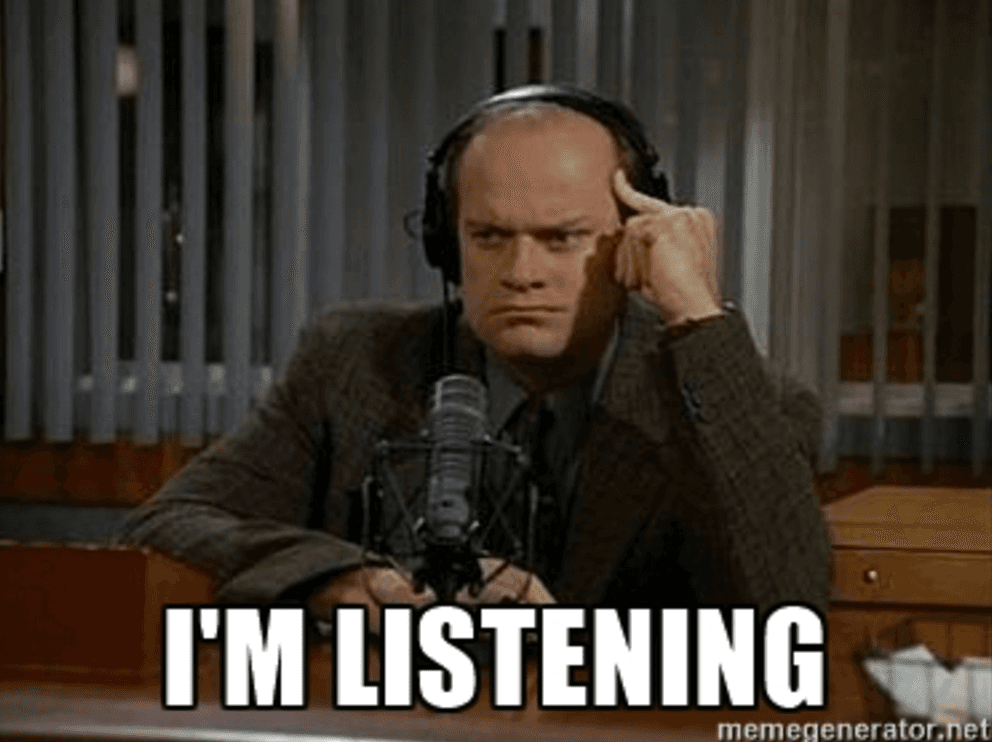Ever tried selling ice to a polar bear? If you have, you'd know that objections are as inevitable in sales as sunscreen on a hot summer day. Navigating the minefield of different types of objections in sales and coming out victorious is what separates the top sales gurus from those who are... well, still figuring out which way their hat goes. But don't panic just yet, we've got your back! Let's dive into the deep end on the topic of objections in sales and how to handle them.
Meet the different types of objections in sales
Not all objections are created equal. It would be nice if they came with labels like 'trust', 'price', or 'I just don't feel like buying anything today', but alas, they're a bit more complicated. And while the labels might indeed be helpful, ultimately, understanding the different types of customer objections is your magical key to overcoming them.
Strategies for overcoming objections in personal selling

When up against different types of objections in sales, a few strategies can be your magic wand:
Expect and embrace objections: Treat objections like speed bumps, not roadblocks. With experience, you'll be able to anticipate most objections. Have responses prepared but don't recite them like a mindless parrot. Each conversation is unique, meaning your responses should be too. If you’re selling software, for instance, be prepared for the frequent price objection; let’s face it, no one likes forking out for new software. But, be ready to jot down unique concerns that customers might have, like integration issues with their existing system.
Practice active listening: The art of listening actively is not just about being silent while your customer speaks, it’s about understanding their underlying emotions and motivations too. Does a tone of irritation imply a previous bad experience with a similar product? Is there a note of curiosity hidden in their skepticism? Stay receptive, ask probing questions, and read between the lines. Think of yourself as a friendly therapist crossed with a detective.
Build credibility: Before you jump into the deep end of your sales pitch, remember to bring your rubber ring of credibility. Feed customers nuggets about your industry expertise, experience, or certifications that add weight to your words. Show data, case studies, or positive customer testimonials to further build trust. Be the Gandalf of your industry, wise and reliable.
Tailored solutions: In personal selling, a one-size-fits-all approach fits no one. Your customers aren't paper cutouts; they're intricate puzzles with jagged pieces. Put yourself in their shoes and churn out solutions catered to their individual needs. If someone is on a budget, show them how your product will save them money in the long run. If time-saving is their goal, illustrate how your service will free up hours for them. Be flexible, adaptable, and above all, customer-focused.
Remain calm and composed: Whether you're dealing with an irate customer or facing a barrage of objections, maintain your cool. This isn’t the time to bring out your inner Hulk. Be understanding, respectful, and patient. Keep the conversation constructive and the tone pleasant. If you're selling devices to a customer who's technologically challenged, don't rush them. Be patient, explain every detail clearly, make them feel comfortable. A calm demeanor goes a long way.
Top 5 objections in sales and potential ways to handle them
There are a few types of objections that can trip you up in personal selling. Some folks might question the value of your product; others might not trust your brand or even you as a salesperson! And let's not forget the mighty price objection, the most popular one among customers higher up in the 'hard-to-sell-to' category. Understanding these categories helps you refine your response and ultimately hike up those sales numbers.
Here's where we get to the juicy bits—the nitty-gritty details of the top 5 objections in sales and how you could potentially put them to bed. When you're tuned in to the reason behind someone's objection, you're in a much better position to fully address is.
Every sale has five basic obstacles: no need, no money, no hurry, no desire, no trust.
- Zig Ziglar
1. The pricing objection
Let's get real straight here, this objection won't sneak up on you. It’s a classic. “It’s too expensive” rings in the ears of sales folks worldwide. Your first instinct might be to slash your prices right there and close the deal. But resist! Remember, your product or service brings serious value to their life, table, or office toolkit. For example, when selling a high-end dishwasher, focus on the time it saves users, its long-term durability, and energy efficiency. Point out that while it might cost more upfront, it's an investment that pays off big time in terms of time, money, and potentially even mental health (because let's face it, dishes suck).
As Julie Thomas says, this is your opportunity to learn more about what motivates someone's reasoning. She notes, "Fully understand the objection and the “why” behind it. Clarification is critical to address the exact concern."
2. The trust objection
In many types of customer objections, trust is a big, ol' stumbling block. "How do I know this will work for me?" stings, mainly because it makes you question your credibility. And then there's the fact that only 3% of people trust sales reps anyway. Ouch.
Address a trust problem head-on. You know what's more powerful than anything you can about yourself? The words of your customers. Use case studies and actual examples of the product in action. Then you can tie that in to how it might work for your current customer.
Imagine you're selling a project management tool. Gather all your success stories, from start-up businesses that blossomed with your help to large corporations which became more efficient. Demonstrate your product in action through demos. Nothing screams "reliable" more than a live demo. Finally, remind them about the return policy or money-back guarantee if things don't pan out like they'd hoped.
So much of sales comes down to listen and understanding what someone wants and really needs. This is one of the most common places for salespeople to falter, too. Studies find that 77% of salespeople don't understand a customer's needs. Take the time to build trust and really listen to your customer.
3. The better option objection
Now, let's address the elephant in the room: the competition. If a potential customer says, "I think your competitor offers a better product," your first instinct might be to verbally claw at the competition. But hold the fight music. Instead, celebrate your uniqueness. Let's assume you are selling organic tea. Your competitor might have a wider variety, but maybe your teas come from a rare, high-altitude farm run by monks in Nepal. Maybe you're the only brand that uses hand-picked tea leaves. Focus on these elements that make your product unique and captivating.
As with every aspect of the sales conversation, draw it back to the unique things your prospect mentioned to show you were listening.
To use the tea example, you might say "I know you mentioned that you enjoy buying gifts for your colleagues and referral partners end of year. Our special teas are truly one-of-a-kind gifts." This highlights what is better about your product anyway, but in a message that shows you heard what your customer values.
4. The “I’ll think about it” objection
Sometimes "I'll think about it" seems like a success. Spoiler alert: it's not.
This is like someone shaking your hand at the end of a first date: you immediately think "Well, I'll never hear from them again..."
Often, this phrase is just a polite brush-off. It's frequently a sign of confusion or indecisiveness, and your role is to guide the customer to clarity. Understand their concerns, validate their feelings, dispel their doubts. For instance, they have doubts about buying the new software for their company. Plant seeds that will grow in their minds. Ask what they think about the software helping them reduce sales cycles or the possibility of improved customer satisfaction. Essentially, give them food for thought. If they're asking for more time, give them something to leave the conversation with that encourages them to think it over and circle back.
5. The 'procrastination' objection
“I don't need this right now” can be a tough nut to crack. Busting procrastination requires creating urgency. It doesn't matter if you're selling resort packages or bike helmets, your goal is to make them realize that time's ticking and they're gonna miss out. If you have limited-time offers, remind them. If it's something with limited stock, let them know. Paint a vivid picture of missing out on the fabulous benefits offered by your product, and the chance to grab it now.

Remember, though, don't push. Sometimes it's just not the right time or the right product. Pressure sales are fleeting successes at best and bitter experiences at worst for your clients. Set the stage, pull the curtains, and let your prospects make the final call. Handling objections in sales isn’t as much an art of persuading, as it is a game of understanding and communicating effectively. You'll gain more trust with this customer when you're upfront about things and don't push them too hard.
The role of empathy in handling objections

Forget robots and algorithms for a second, sales is primarily about human connections. Therefore, empathy, understanding, and a bucket-load of patience can magically transform a heated conversation into a closed deal. Practicing empathy means stepping into the customer's shoes, understanding their concerns, and addressing them sincerely and convincingly.
Even if someone's objections aren't the same concerns you'd have, that doesn't make them any less valid.
When dealing with objections, resist the urge to jump into defensive mode. Instead, listen actively, mirror their disappointment to show you understand, and then calmly explain your perspective. Remember, you're helping them solve a problem or meet a need – not just trying to make a sale.
The best way to sell something: don't sell anything. Earn the awareness, respect, and trust of those who might buy.
- Rand Fishkin
For more info and scripts you can use, be sure to check out our ultimate guide to sales objection handling.
Magical makes it easier to handle objections
Bring out your fireworks, folks, because you've now got a pretty solid stepping stone for dealing with different types of sales objections. Remember, objections aren't barriers but opportunities to understand your customer better and serve them more effectively. With Magical at your side, you can even have your sales rebuttal templates saved and ready to serve off anytime one of these objections comes up.
Download the free Chrome extension to see how it can save you seven hours a week.
